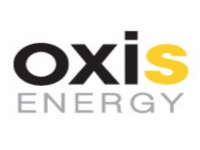Technology
OXIS ENERGY HAS JOINED ECLIPSE WHICH WILL BE LED BY AIRBUS DEFENCE AND SPACE
RESEARCH TO DEVELOP Li-S TECHNOLOGY

(Source: Oxis Energy)
USPA NEWS -
OXIS Energy has joined the European Consortium for Lithium Sulfur Power for Space Environments (ECLIPSE) which will be led by Airbus Defence and Space. The research, aimed at developing Li-S technology for space applications will ensure that harsh space constraints are taken into account...
OXIS Energy has joined the European Consortium for Lithium Sulfur Power for Space Environments (ECLIPSE) which will be led by Airbus Defence and Space. The research, aimed at developing Li-S technology for space applications will ensure that harsh space constraints are taken into account.
The most recent battery technology based on Lithium Sulfur and developed by OXIS Energy has shown very promising results, particularly in terms of specific energy and cycling performances.
The most recent battery technology based on Lithium Sulfur and developed by OXIS Energy has shown very promising results, particularly in terms of specific energy and cycling performances.
ECLIPSE research will focus on three levels :
- Cell level studies, including research to optimise the four main cells components:
anode, cathode, separator and electrolyte to achieve 400Wh/kg cells compatible with space cycling profiles.
- Battery and encapsulation level, including prototyping and theoretical studies. System level studies for integration in satellite and launcher architectures, taking into account the economic constraints and the future technical challenges. The project will have a duration of 24 months.
- Cell level studies, including research to optimise the four main cells components:
anode, cathode, separator and electrolyte to achieve 400Wh/kg cells compatible with space cycling profiles.
- Battery and encapsulation level, including prototyping and theoretical studies. System level studies for integration in satellite and launcher architectures, taking into account the economic constraints and the future technical challenges. The project will have a duration of 24 months.
- The expected results of ECLIPSE are:
Weight reduction of batteries by a factor two. Cost reduction at all levels: subsystem, system and launching costs. Further advancement of the technology.
As well as OXIS and Airbus Defence and Space, other players comprise Fraunhofer IWS, CEA, SAFT, SPRL, Solvay S.A., Imperial College London and Brno University of Technology. ECLIPSE is a very ambitious proposal with ground breaking objectives to reach long lifetime and high energy density cells, with very low self-discharge
Weight reduction of batteries by a factor two. Cost reduction at all levels: subsystem, system and launching costs. Further advancement of the technology.
As well as OXIS and Airbus Defence and Space, other players comprise Fraunhofer IWS, CEA, SAFT, SPRL, Solvay S.A., Imperial College London and Brno University of Technology. ECLIPSE is a very ambitious proposal with ground breaking objectives to reach long lifetime and high energy density cells, with very low self-discharge
Steven Rowlands, who is the Technical Lead on the project, said the following: 'Using OXIS's innovative lithium sulfur rechargeable battery technology, much lighter payloads will be possible and this will reduce launch and mission costs considerably. For example, at current launch prices, for every kilogram of weight saved, we anticipate a saving of up to €20,000. An energy density of 400Wh/kg is anticipated in two years, which will half the weight of the incumbent satellite battery systems. The ECLIPSE project brings together the perfect team to accelerate not only the progress of satellite batteries but all electrical energy storage applications in the future.'
Source : OXIS Energy
Source : OXIS Energy
Ruby Bird Yasmina Beddou Li S Technology For Space Applications Lithium Sulfur Power Oxis Energy European Consortium Lithium Ion Products Eclipse Technology Space Batteries Component Research
Liability for this article lies with the author, who also holds the copyright. Editorial content from USPA may be quoted on other websites as long as the quote comprises no more than 5% of the entire text, is marked as such and the source is named (via hyperlink).






